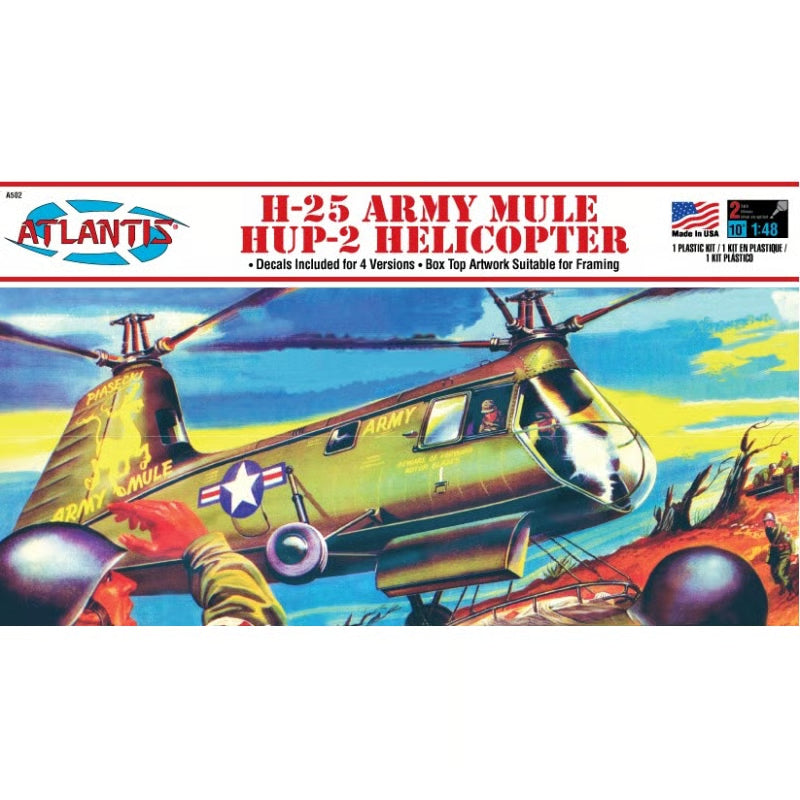Atlantis 1/48 H-25 Army Mule HUP-2 Helicopter Model Kit AMCA502
Atlantis 1/48 H-25 Army Mule HUP-2 Helicopter Model Kit AMCA502 will be backordered from our supplier. Delivery will take between 3-5 working days & orders will be despatched once completed.
Description
Description
This kit not been available for over 45 years! Comes from the tooling which was sold to Aurora in the 1950's.Kit comes moulded in Olive Drab and clear. Also included is a decal sheet for 4 versions.
Easy kit to build. Skill level 2 plastic model kit that requires assembly, glue and paint.
| No. of parts | 17 |
|---|
Additional items are required to complete kit as illustrated.
Payment & Security
Payment methods
Your payment information is processed securely. We do not store credit card details nor have access to your credit card information.



